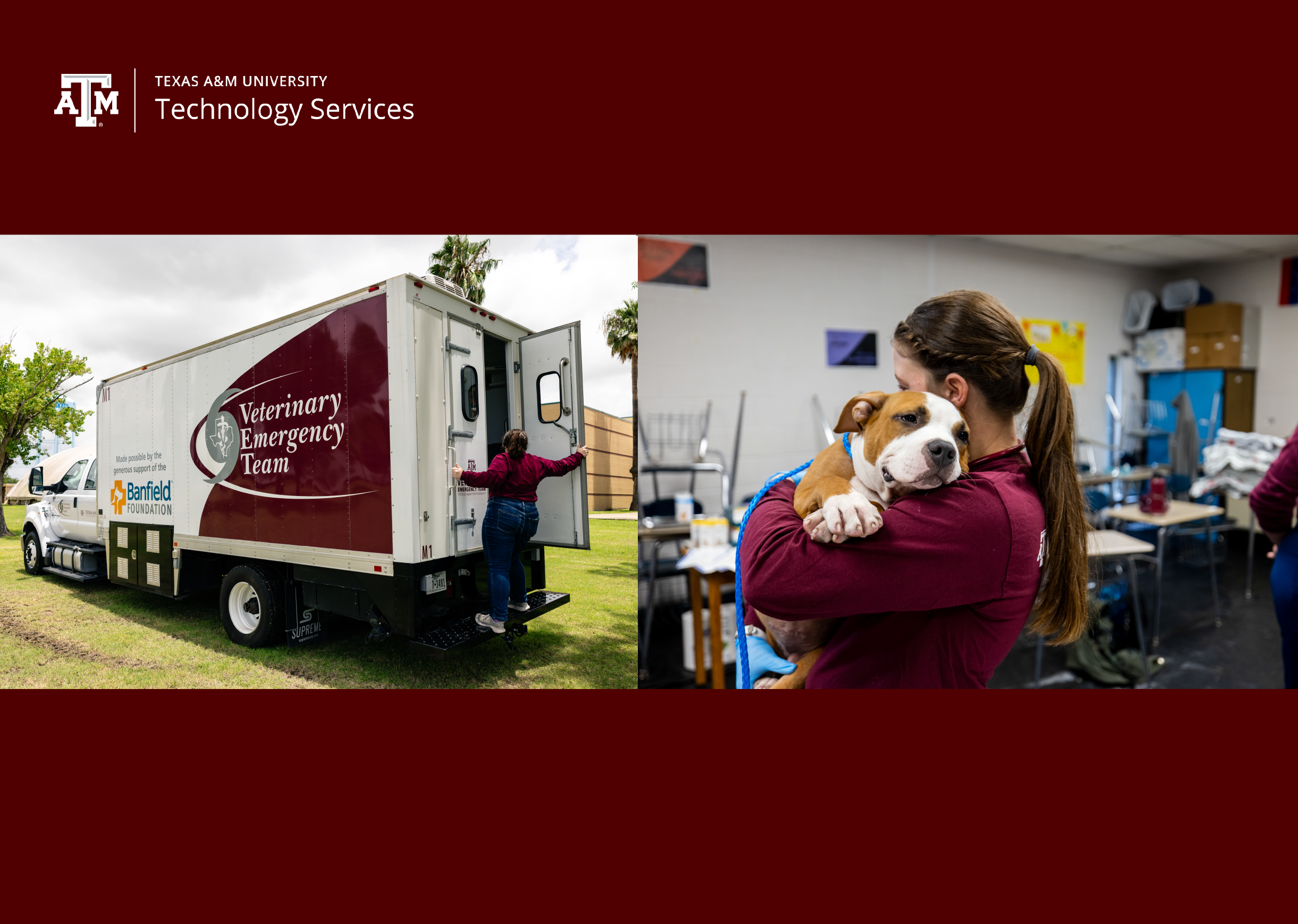August 6, 2024

Texas A&M University’s Technology Services department assisted Texas A&M’s Veterinary Emergency Team (VET) during the annual Operation Border Health Preparedness (OBHP) event from July 22-26, 2024. This event, Texas' largest disaster preparedness exercise, took place in Raymondville and involved multiple emergency response teams from across the state. The VET team provided critical veterinary services to a community often lacking access to such resources, treating 950 dogs and cats and delivering over 4,500 services.
The mobile internet solutions installed in the trailers enabled veterinarians to access the necessary tools and equipment to carry out their work effectively. This technological support is integral in ensuring seamless operations and the delivery of high-quality veterinary care. As technology becomes more integrated with the university's mission-critical work, Technology Services is excited for opportunities to partner with university departments and help make an impact.
Reflecting on the collaborative success, Mitch Wittneben, Assistant Vice President for IT Academic Operations, said, "The dedication and teamwork displayed by everyone involved were truly inspiring. We are honored to partner with VetMed to explore innovative ways to enhance service delivery to first responders and disaster-affected individuals."
Dr. John R. August, the Carl B. King Dean of Veterinary Medicine, extended his gratitude to Technology Services for their role in enhancing their operational capabilities. Now in its fourth year of participation, the VET's involvement in OBHP underscores its dual mission of disaster readiness and community service.
“The VET’s partnerships with professional staff like the Technology Services team is vital to our success in serving communities in need,” said Dr. Deb Zoran, VET director. “The mobile internet solutions that Technology Services installed allowed our team to work more efficiently, which ultimately made our efforts more effective at OBHP. We cannot thank Technology Services enough for their support of the VET and our service mission.”